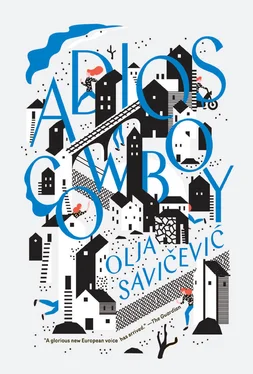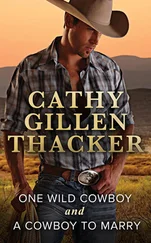Until recently there was also horse shit on the highway, but not anymore. It’s become too dangerous to drive a cart and horses there. And I think there’s just one man in the whole town with a horse now; it’s illegal to keep a horse in town now, but he’s the old blacksmith, and they’re just waiting for him to die in peace, if Ma is to be believed. What’ll happen to that horse when the blacksmith dies, I wonder. There used to be a smithy in the Old Settlement run by that old man, in the port where the restaurant La Vida Loca is now. But it closed the year Daniel was born. I remember the sound of the shoeing, the horses neighing at the darkness and fire. I was still very small, and I looked at things from a distance, staring out of the summer light that hurts the eyes, into the open darkness of that building. I was still very small when along the street where we lived one would hear hoof beats on the worn stone, an unreal sound the way the sound of a Ledo van inviting you to have an ice cream during the afternoon siesta is unreal. Willy Wonka has come to your town too.
But there are no longer fresh horse droppings in the streets. Dogs shit and no one picks up after them, just as they didn’t after the horses. But no one’s going to throw dog turds at you, you can be sure. That really would surprise me.
When the shape of my mother in the distance becomes a line — a horizontal line, a minus, rather than vertical, as one might expect, because of the glare on the road — I turn and hurry toward the house, along the concrete stream beside the new buildings for disabled veterans. There used to be all kinds of rubbish and treasure in that stream: in springtime it would hurl itself over the trash barrier. Since it’s been cleaned out and lined with concrete, I’ve noticed that a ribbon of slime trickles along it, congealing into green mud in summer.
“You could go to the cemetery on your own tomorrow,” I suggested to Ma the day after I arrived. “I’ve got things to do in town, it’s quite important,” I lied.
Ma smiled at that, exactly as my sister had said she would, producing her Hollywood smile at the wrong moment. She had nice teeth, a gold incisor in her lower jaw. Sometimes she would tap her teeth with her fingernail to demonstrate their firmness and health.
“Mother looks like a smiley on speed,” I told my sister over the phone, later.
“See what I mean,” she replied, blowing smoke into the receiver at her end.
I told her I found Xanax, some Prozac, Diazepam, Praxiten and Valium on the floor, under the dresser in the kitchen in an ancient boiled-sweet tin along with plasters, Aspirin, and cough pastilles. Ma wasn’t even hiding them, as my sister had presumed — or else Ma knew that one of the best places to hide things is where they can be seen. Yet last winter she had thrown them all into the bin, I saw her do it.
“Where on earth does she get them?” asked my sister, incensed.
It’s not hard, I thought. Half the student hostel was on vodka or wine combined with Valium, sedatives, and other bits and pieces that can theoretically only be got on prescription. They’re cheaper than sweets.
“Leave her some Lorsilan to help her sleep,” my sister advised. “Anything else you find you can chuck down the toilet.” I flushed it several times, but one blue Prozac capsule kept floating back to the surface. In the end, though, even that persistent one disappeared.
Later, as I sit on the swing on our balcony, I can see out over the roofs. Our neighbors greet me from the street and I wave back.
When Ma appears — first a minus sign, then a mole — from the west, behind the baker’s house, I wave to her too. As soon as she reaches the door, I tell her: “I’ve decided to stay for a while, Ma. Could you take Daniel’s things out of my cupboard?”
She’s standing in the cloakroom, in front of the washbasin, rubbing soap into her hands under a jet of water.
“Yes,” she says, turning off the water, drying her hands with a stiff towel.
“S’no point taking flowers in summer, they all burn up in a day,” she adds thoughtfully.
* * *
“I’ll use the rebate on my pension,” says Ma later, dividing the melon with a blunt knife as we sit in the hybrid dining-living room we call the tunnel, “to fix up the grave.” She says she’ll put the shares she’s sold into my account. “You never know, one day you might want to finish your degree.”
I say: “Okay. But I’ll keep it for my own pension. By then folk’ll be able to go to the moon. Although your shares won’t be enough for even two minutes on the moon.”
“At least you’ll be able to go to the moon,” she concludes thoughtfully, and, nodding, she drags her slippers behind the green curtain that divides the kitchen from the improvised room.
“You’re hungry,” the green curtain shouts now. “But there’s no fresh bread. I couldn’t get none, the Albanian closed early. Give me a moment, I’ll make some French toast.”
I don’t like French toast, I begin to say, why can’t you remember, but I change my mind and say: “Fine.”
Behind the curtain I hear the clink of tin plates and eggs being broken, milk gurgling.
“Did you know that swallowfish molt when they come back south from the north? Their feathers fall out, and they grow scales and fins so they can swim again.”
I sometimes tell her idiocies like this to amuse myself.
“Everything’s possible after Chernobyl,” she replies, beating the egg yolk, milk, and sugar together briskly. “The Mišković woman from Lower Street gave birth to one child with three fathers.”
* * *
My room is a box in a house of boxes.
At a time I don’t remember, this was a cellar full of barrels, then it was used as a larder, so there are no windows in the room. Just a narrow door, a narrow table, a huge wardrobe with a large Crying Baby Doll on top of it, and a bed, with a few of Daniel’s leftover ancient film posters on the walls, mostly westerns. There’s a dry olive twig tucked behind one of them, in memory of John Wayne.
Before it was Daniel’s room, and before it was mine, that catacomb on the ground floor, in the depths of the house, was where my mother’s gran had lived, motionless, a blind and immobile diabetic. Five years in the dark, without moving, entirely conscious.
“Santo Subito,” said my aunts and some women whose particular faces under their permanent waves I can’t remember. There was one blind woman who never protested or complained much, which is a sound reference for sainthood. She recited her prayers with thin lips that had once been full. In the old photographs of our great-grandmother my sister noticed the same thing: “A smoker’s lips,” she remarked, grinning.
There was nothing that ancient woman would rather talk about than love, with a lot of spice. As we grew up and she began to fade, the old lady’s youth became ever more unbridled, until in the end — in our recollection of her past — she was canonized as the insatiable one.
She buried three husbands, gave birth to five children, and in her mature womanly days she was able to scythe a field of brambles, fennel, and asparagus — so it was said — and then eat two kilos of shellfish for lunch and wash them down with three quarters of a liter of red — so it was said. She swore out loud and frequently and prayed with equal fervor.
Throughout her stay with us, Mother systematically disinfected the little room, I remember. There were mothballs in all the cupboards, the odor of lavender and camphor in the corners.
“She’s afraid the old girl’s going to fall to pieces on her, any minute now she’ll be dousing her in formalin,” said my sister. “Or quicklime.”
The embalmed old lady, fairly emaciated, was not much bigger than me or Daniel then. She was vanishing before our eyes, day by day, on her high bed, with heaps of quilts, from under which she squeaked: “Children! Oh, children!”
Читать дальше












